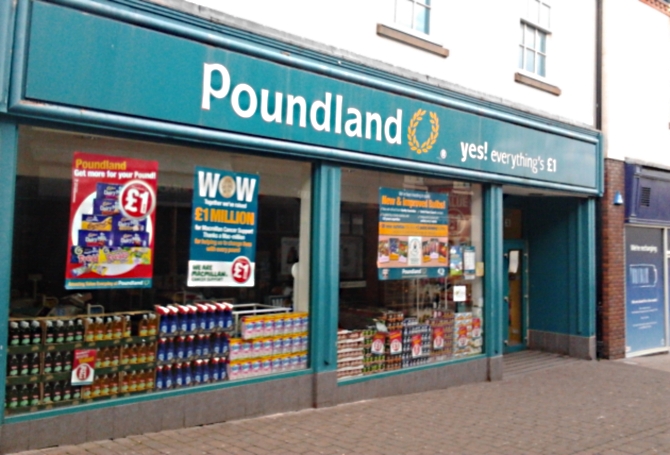Discount shops proved to be one of the few success stories on the high street during the recession, frequently taking-up properties vacated by struggling retailers. This trend has continued with names such as Aldi, Lidl and Poundland all increasing their market share as consumers seek to reduce their shopping bills.

However, somewhat surprisingly, a new survey has found that household goods, rather than the weekly food shop, are the items most sought after by consumers visiting independent discounters.
The study of 2,000 consumers who choose to shop at independent discount stores was conducted by specialist wholesaler to the discount sector, Rowan. Consumers up and down the country were questioned about their shopping habits between the 5th and 9th of December last year – a time when many would be on the local high street to purchase Christmas gifts.
It found that around 70.4 per cent of customers visit their local independent discounter specifically to purchase household items such as blankets, curtains and cooking utensils, while around 17 per cent choose to purchase alcoholic beverages at lower prices than generally offered by supermarkets.
Four in ten turn to discounters for groceries and confectionary items, meanwhile, and one third of participants claimed to purchase a variety of items from laundry powder to soft drinks and beauty products to painkillers.
Commercial director at Rowan, James Russell, believes the customer base of most discount stores goes a long way in explaining their recent surge in popularity. However, he indicated that it is not only low prices which bring in custom, but also quality of produce on sale.
He says; “The two largest users of cleaning products are retirees and families – both of whom are now the largest users of the discount sector.
“Retirees in particular are more likely to have high awareness of good brands which no longer receive the sort of marketing support that they used to – and these are exactly the products found in many independent and high street discounters.
“Household goods are a particularly interesting sector for the brands themselves, as independent discounters don’t tend to stock own label goods which would undercut their profits.”
While this is certainly an interesting insight into the consumer attitude on the high street, it may not be a welcome piece of news for smaller retailers competing against discounters. However, the survey does highlight one crucial element of the discounter game plan which if adopted could work in the favour of corner shops and convenience stores.
Should they begin to take notice of the products and brands flying off the shelves of neighbouring discounters, it could prove to be a relatively successful means of poaching market share from both discounters and supermarkets.
In the cut throat world of the retail industry, techniques such as these are now more than a means of raising profits – they could well be the only way to ensure survival for smaller middle pricing businesses being squeezed at both ends of the cost chain.
Previous Post
Funding kick-starts Warrington Business Incubator Hub